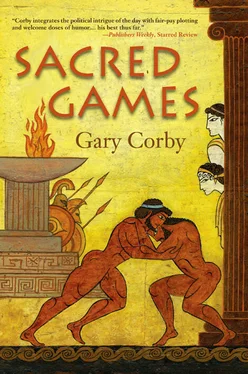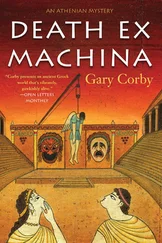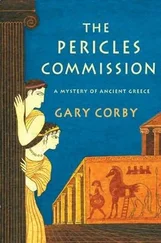Gary Corby - Sacred Games
Здесь есть возможность читать онлайн «Gary Corby - Sacred Games» весь текст электронной книги совершенно бесплатно (целиком полную версию без сокращений). В некоторых случаях можно слушать аудио, скачать через торрент в формате fb2 и присутствует краткое содержание. Год выпуска: 2013, ISBN: 2013, Издательство: Soho Press, Жанр: Исторический детектив, на английском языке. Описание произведения, (предисловие) а так же отзывы посетителей доступны на портале библиотеки ЛибКат.
- Название:Sacred Games
- Автор:
- Издательство:Soho Press
- Жанр:
- Год:2013
- ISBN:978-1-61695-228-0
- Рейтинг книги:3 / 5. Голосов: 1
-
Избранное:Добавить в избранное
- Отзывы:
-
Ваша оценка:
- 60
- 1
- 2
- 3
- 4
- 5
Sacred Games: краткое содержание, описание и аннотация
Предлагаем к чтению аннотацию, описание, краткое содержание или предисловие (зависит от того, что написал сам автор книги «Sacred Games»). Если вы не нашли необходимую информацию о книге — напишите в комментариях, мы постараемся отыскать её.
Sacred Games — читать онлайн бесплатно полную книгу (весь текст) целиком
Ниже представлен текст книги, разбитый по страницам. Система сохранения места последней прочитанной страницы, позволяет с удобством читать онлайн бесплатно книгу «Sacred Games», без необходимости каждый раз заново искать на чём Вы остановились. Поставьте закладку, и сможете в любой момент перейти на страницу, на которой закончили чтение.
Интервал:
Закладка:
Socrates and Hippocrates almost certainly met about forty years after the time of this story, on the occasion when Hippocrates visited Athens, which the great doctor did at the invitation of Pericles. Which means that at one point in history, Pericles, Socrates, and Hippocrates were in the same room together. One wonders what the world’s greatest statesman, the world’s greatest philosopher, and the world’s greatest doctor said to one another. Alas, we’ll never know.
In Nico’s time, the latest fad in sports science was the all-meat diet. It’s easy to see why. The usual Greek diet was almost entirely seafood, vegetables and fruit. All very healthy! Red meat was extremely expensive and hard to obtain. But meat, and the fat that goes with it, is high-energy food, just the thing for a top athlete. After several meat-eating athletes won famous victories, the all-meat regimen became mandatory for any serious competitor. It must have cost their fathers a small fortune.
The Butcher of the Games is a job I invented, but I think that there must have been such a position, because there were so many sacrifices held at the Olympics.
We think of the Olympics as a sporting event, but to the Greeks, the Sacred Games were first and foremost a religious festival, and no religious ceremony was complete without a sacrifice.
The everyday, typical Greek sacrifice was always eaten. That was how poor families got their only meat meals, and since the sacrifices were supplied by rich men, it was as much as anything a charity system to get some quality food to the poor.
The sacrifice of the hundred white oxen at the Olympics was the largest such event of the ancient world. Though they might be a supersized meal, they were a typical sacrifice and therefore could be eaten.
This is the equivalent of holding a sausage sizzle after a Sunday church service. These days we don’t tend to think about how the meat got inside the sausage, but you need only go back a few generations, to, say, the early 1900s, for the roast pig on the spit outside the community church to be very recently deceased. In a world without refrigeration the healthiest way for the meat to get to the barbecue was for it to walk there on its own four feet.
The Olympic Oath was almost certainly sworn over sacrificed meat. An oath sworn over a sacrifice was particularly powerful, and the meat of such might not be eaten. But that was by far the exception.
Of all the events described in this book, the most ridiculous is the ox made of bread. So needless to say, it really happened. This is one of those cases of real life being sillier than anything a writer could get away with.
The philosopher Empedocles believed in reincarnation; he declared that he himself had once been a fish and a bird, and that therefore we should not kill our fellow beings. All of which is remarkably Buddhist for an ancient Greek of the fifth century BC. Pythagoras too had taught reincarnation in the century before. It’s interesting to speculate how differently Europe might have developed had their teaching caught on.
But Empedocles is better known for his other doctrine: that everything in the world is made up of four elements: earth, water, fire and air. Previous philosophers had had a go at answering this very important question: what was everything made of? Thales, the world’s first true scientist, had held that all matter was simply different forms of water. His student Anaximenes opted for air. Xenophanes liked earth. Heraclitus, who gets a mention in The Ionia Sanction , declared that fire was the basic element. Empedocles covered all the bases by declaring that all four of these made up the basic elements. This idea caught on big time!
In fact, it caught on all too well and never let go. To this day, the four elements of Empedocles are central to the theories of alchemists who haven’t quite caught up with the latest developments, with astrologers and practitioners of magic in the Western tradition.
Few things can destroy your confidence in the accuracy of historical dating as completely as the detailed study of who won what at the Olympics, and in which Olympiad. Every Greek city ran its own calendar, with its own years; the only thing everyone had in common was the Olympics. So the Greeks used the Olympiads to synchronize their calendars, and when writing about a given world event, would refer to the year it happened by its closest Olympiad. The typical logic would go: “World Event X happened in the same year that So-and-So won the Such-and-Such event at the Nth Olympics.” The Greeks expected everyone to know the winner lists for every Games.
The only problem was, it was by no means certain in which Olympiad So-and-So competed. There are some astounding contradictions, even in the ancient sources, due to fallible human memory. For example it was commonly stated, even in ancient times, and you’ll find it repeated all over the internet, that King Alexander I of Macedon competed in the stadion (sprint) event at the 80th Olympiad, which happens to be the Olympics when this book is set. Herodotus mentions it, and there’s even a fragment of a praise song written by Pindar. But Alexander doesn’t appear in Sacred Games because it would be unusual for a man in his fifties to be sprinting! The date is simply wrong. If Alexander did compete at the Olympics, and it’s by no means certain that he did, then it must have been thirty years before.
In the book I have the heralds argue over which Olympiad Dromeus won in. Their inability to agree is all too accurate. The most comprehensive winner list-and that’s not saying much-was compiled by a fellow named Eusebius. Eusebius lived much later, but wrote chronologies for all sorts of things, and one of them was a “complete” list of winners of the Olympic stadion event. Even so, he must certainly have missed some winners, and he must surely have been relying ultimately on the fallible memories of men such as the heralds, who passed on the list by oral tradition. You don’t have to miss too many entries before the dating of the winners is out by twenty years or more.
Dromeus is needled mercilessly for having won an Olympic crown without having to compete. This actually happened. The story goes that in the Olympics at which Dromeus competed, there were only two contenders for the pankration: Dromeus and a man named Theagenes. Theagenes had also entered for the boxing, which he won.
Dromeus then stood up to compete for the pankration, but Theagenes refused. He declared that he was too tired to compete. The judges were furious, and they fined Theagenes heavily, but they couldn’t force him to fight. There was no choice but to declare Dromeus the winner as he was ready and willing to compete. Dromeus thus became the first person in history to win at the Olympics without doing a thing. It was no fault of his own, but it surely must have weighed on him.
Dromeus really did come from the city of Mantinea, and the real Diotima also came from Mantinea. The connection was too good to pass by: I made up the bit about them being related.
Believe it or not, the mortality rate in this book is probably low compared to the reality. The pankratists and the boxers really were absolved of murder before the contest began. The chariots were as dangerous as they looked.
There was a famous chariot race held a few years before the Olympics of this book, at the Pythian Games, in which no fewer than forty chariots crashed out. Pindar wrote a praise song for the winner, who was probably very relieved to be still alive.
No one was in the least bothered by the deaths. Quite the opposite, in fact. The degree of danger they faced enhanced the virtue of the sportsmen. This is by no means only an ancient attitude. The demand for safety in sport is a very recent attitude indeed. Back in the 1960s and 1970s, not long ago at all, a Formula 1 racecar driver had a 1 in 3 chance of surviving a five-year career.
Читать дальшеИнтервал:
Закладка:
Похожие книги на «Sacred Games»
Представляем Вашему вниманию похожие книги на «Sacred Games» списком для выбора. Мы отобрали схожую по названию и смыслу литературу в надежде предоставить читателям больше вариантов отыскать новые, интересные, ещё непрочитанные произведения.
Обсуждение, отзывы о книге «Sacred Games» и просто собственные мнения читателей. Оставьте ваши комментарии, напишите, что Вы думаете о произведении, его смысле или главных героях. Укажите что конкретно понравилось, а что нет, и почему Вы так считаете.












